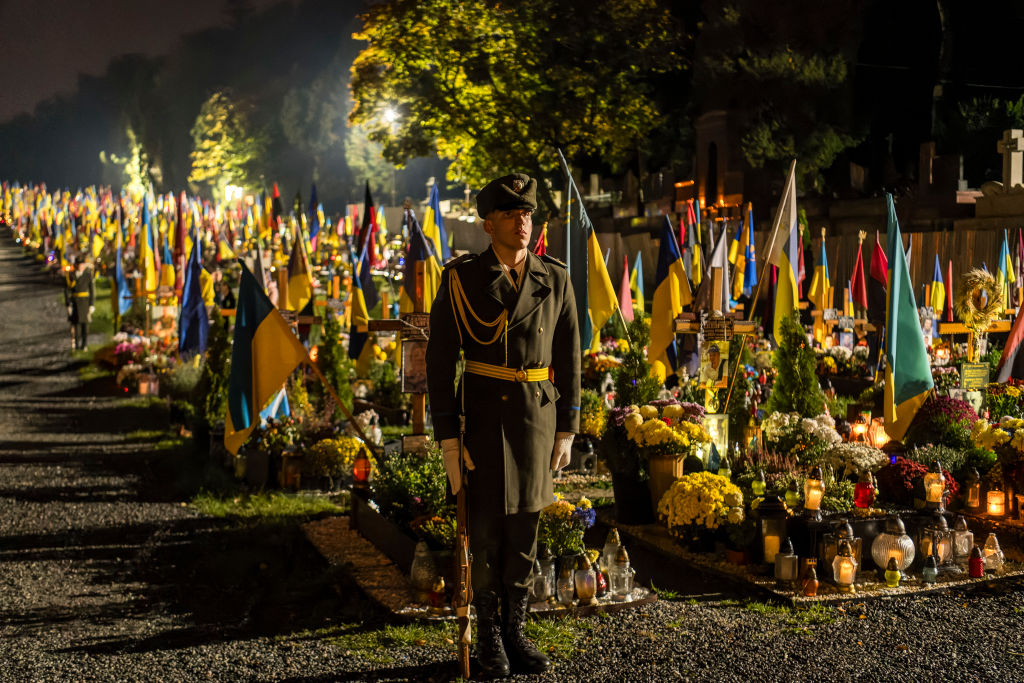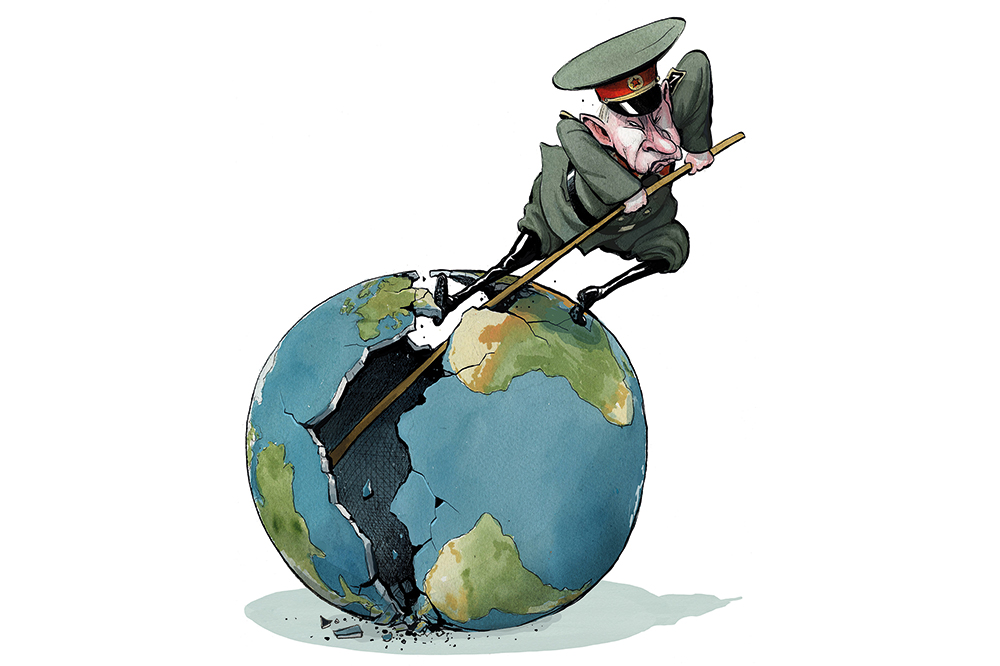Vasyl, a burly, tattooed infantry commander who lost a leg to a Russian mine on the eastern front, sits swinging his remaining leg on the edge of the treatment table in the ‘Unbroken’ rehabilitation clinic in Lviv. He’s been inside the Russian trenches 50 times, he tells me. His stories are reminiscent of the first world war. I ask him what Ukraine needs for victory. Answer: ‘Motivated people.’ His T-shirt proclaims ‘no sacrifice, no victory’. After we shake hands and I wish him luck, he suddenly jumps off the table and starts skipping at amazing speed, his blue skipping rope whizzing around under his one foot, while he looks at me with a broad grin, as if to say ‘Here’s your answer’.
Maksym, a sturdy marine and professional sniper, who lost a foot to a hidden Russian mine on the southern front, is less exuberant. The minefields are terrible, he says, and the Russians well dug into their defensive positions. And, he adds, ‘they have more men’. He believes that victory will come only if Vladimir Putin dies or there’s a coup in Moscow. Otherwise, ‘this war can continue for years, or even decades’.
According to American estimates, Ukrainian fatalities in the first year and a half of this full-scale war exceed the US losses in two decades of involvement in Vietnam. I visited the military cemetery in Lviv to lay flowers on the grave of a volunteer soldier called Yevhen Hulevych, who I met in this beautiful western Ukrainian city last December, shortly before he was killed near Bakhmut. I was shocked to see that the forest of fresh graves had almost doubled in size since I was last there. There were now 520 fallen from this one city, including three women, all medics. But Ukraine is running short of people ready and able to fight.








Comments
Join the debate for just £1 a month
Be part of the conversation with other Spectator readers by getting your first three months for £3.
UNLOCK ACCESS Just £1 a monthAlready a subscriber? Log in